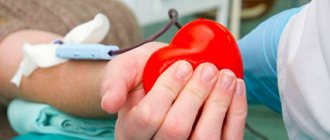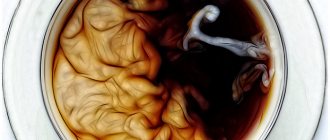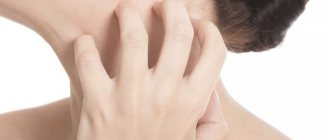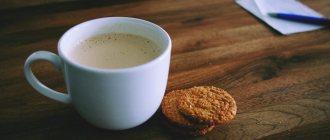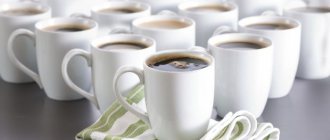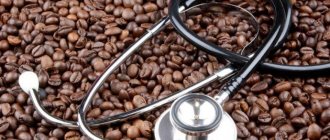The favorite aromatic drink all over the world is coffee, the dangers and benefits of which are still debated. One of the points of contention among fans of invigorating grains is its diuretic properties. It is necessary to figure out whether it is there and what effect this drink has on the body.
Is it true that coffee makes you grow old?
How does coffee affect the aging process of the body? There is no clear answer to this.
- According to one opinion, coffee lovers, that is, people who constantly drink more than 2 cups of an invigorating drink a day, cause inexorable damage to their own youth. The fact is that coffee accelerates metabolic processes in the body, creates a load on the kidneys, has a diuretic property and helps remove fluid from the body. As is known, dehydration, electrolyte imbalance, and slowdown of regenerative processes lead to aging. The skin becomes dry, dull, loses elasticity, and sags. Wrinkles appear on it. The condition of hair and nails also worsens. The entire body as a whole wears out faster.
- There is also another opinion, different from the first one, according to which coffee is recognized as a miraculous anti-aging drink due to its antioxidant properties. Coffee prevents the destruction of cells due to the effect of oxygen free radicals on them, which allows you to maintain youth and health.
IMPORTANT: If you want to look young, you don’t have to give up your favorite coffee. Drink 1-2 cups of drink per day. To compensate for fluid loss, it is recommended to drink 2 glasses of mineral water after each cup.
Abuse of coffee leads to aging of the body.
Foods that cause swelling
It is generally accepted that low-calorie diets are an absolute weapon against excess weight. However, it also happens that a girl, significantly limiting herself in calories, cannot get rid of excess fat. And all because excess weight in the case of our heroine is not fat at all. This is swelling. How to distinguish swelling from fat? You can distinguish fat from edema in a practical way. You can go on a low-calorie diet to see if calorie restriction works. If the extra pounds do not begin to disappear under the influence of energy restrictions, with an 80% chance we are faced not with fat, but with an edematous mass. You can take an easier route: 1. Determine the density of your problem areas. Fat is much denser than edema. If you press on the swelling, you may notice a dent in the skin, which will disappear after a few seconds. 2. Start weighing yourself in the morning and evening. Do you gain more than 500 grams per day, and in the morning lose the same 500 grams? This means you have swelling. And the more you gain in a day, the more swelling weight you bear. Pillow marks that do not leave the skin 10-15 minutes after waking up can also be signs of edema. The extra 5–10 kilograms gained during the holiday week is also swelling, not fat. Fat is not burned or stored as quickly. Gaining or losing a kilogram of fat in a day is nonsense. What can we say about the two or three kilograms that many women who think they are accumulating fat manage to gain and safely lose? Foods that cause edema “The usefulness of the diet is more important than the calorie content” is the main postulate of a person who wants to get rid of edema. The first thing you need to give up is salt and salty foods. Various pickles, herring, salted peanuts, sauerkraut (and other vegetables), chips, any fast food containing salt, ketchups, various sauces - any of these products can cause swelling. Sugar also retains water in the body. Fatty foods high in sugar are especially dangerous. Forget donuts, brownies and cakes. At least temporarily give up packaged juice. Spicy dishes seasoned with various sauces and dressings also provoke an increase in swelling. Any foods that personally cause bloating in you (most often fresh bread, milk, legumes) should not be consumed by those who want to lose weight. How to get rid of swelling? First of all, it is worth increasing the amount of clean water consumed several times.
It is necessary to wash away the substances (most often salt) that retain water. Tea, coffee, juices are not water. Three to five liters of water per day and the second point of our plan may not be useful. To get rid of edema for sure, you need to eliminate foods that provoke it. Most often, swelling is caused by salty foods. At first, you should give up only them. Yes, you will have to exclude herring, peanuts, pickles and sauerkraut from your diet. Most often, avoiding salty foods, seasoned with a huge amount of plain water, allows you to get rid of swelling within a week. There are also other ways to get rid of edema (baths, various diets, sports), but as practice shows, water and avoiding salty foods are the fastest and easiest method of getting rid of edema.
Is it possible to drink coffee before taking urine, blood, hCG, biochemistry and other tests?
Laboratory tests of urine and blood help to determine any specific disease, and also determine the condition of individual body systems and the entire body as a whole. In order for the analyzes to be informative and truthful, you need to prepare for them very carefully. For those who do not know exactly how, it is better to consult a doctor. An important place in this preparation is occupied by nutritional adjustments at least three days before the analysis. Of course, we are talking about a planned donation, and not about one that is carried out during emergency hospitalization. So, on the eve of a urine test, a clinic and blood biochemistry, as well as a test for sugar and hormones, it is recommended to give up coffee. Some doctors urge you not to drink it 12 hours before the test, others - 24 hours.
You should not drink coffee before taking blood and urine tests.
A tonic drink affects many vital signs of the body:
- due to stimulation of diuresis, the color of urine becomes lighter
- the content of calcium salts, as well as magnesium, citrates and other substances increases in the urine
- blood sugar levels increase
- the blood gets thicker
- changes hormonal levels (affects the functioning of the pituitary gland, thyroid gland, adrenal glands, gonads)
IMPORTANT: Coffee does not affect the results of serological blood tests (blood type, HIV, syphilis, etc.).
How does swelling appear?
The problem occurs in people of different ages, professions and does not depend on gender. Moreover, they do not always signal diseases, but may be associated with an incorrect lifestyle or hormonal changes in the body.
The most common reasons are;
- instability of cardiac activity;
- kidney diseases. Because of them, the legs and ankles swell. It is quite painful;
- malfunction of the thyroid gland. Dangerous swelling can occur in the mouth and larynx. And also on the lower part of the legs;
- allergic reaction. Another type of dangerous edema, the most famous of them is Quincke's edema. It can lead to death from suffocation, as the tongue and larynx swell. For any slightest manifestations, you must immediately consult a doctor;
- metabolic disease. Accompanied by varicose veins, stagnation of lymph in the interstitial layers. Typical for people of heavy build who have a couple of dozen extra pounds or more;
- pregnancy. A common phenomenon associated with weight gain. Often the child presses against the blood vessels, preventing fluid from circulating freely throughout the mother’s body. Therefore, during the period of bearing a child, especially in the later stages, it is recommended to move more so that there is no stagnation in the body;
- uncomfortable shoes. Swelling in the legs is often a consequence of this problem. It can be solved without prescribing a diet;
- a lot of salt in the body. Salt organizes water retention in the body; it enters the body from salty foods, the amount of which must be limited;
- Drink a lot of water in the evening. Swelling appears in the morning and does not require separate treatment.
There are many reasons for the appearance of edema, and to determine the truth in each individual case, you need to consult a doctor.
Can I drink coffee before surgery?
It is necessary to drink water, carbonated and non-carbonated drinks, including coffee, no later than 2-3 hours before surgery under general anesthesia. You can drink coffee with milk, which contains animal protein, for the last time 6-8 hours before surgery. This prohibition is explained by the fact that under the influence of central anesthetics, the muscles of the surgical patient relax, and the brain loses control over many vital functions, including swallowing. If the liquid drunk before surgery does not have time to be absorbed and remains in the stomach, it may be released into the respiratory tract, causing the patient to suffocate.
IMPORTANT: Is it worth drinking coffee on the eve of surgery at all? American scientists today are inclined to believe that a cup of aromatic invigorating drink without sugar and milk a couple of hours before the invasion will not only not hurt, but will also be beneficial. Especially for those patients who have a caffeine addiction. Lack of caffeine after surgery under anesthesia is fraught with headaches and increased melancholy syndrome
The effect of caffeine on blood vessels
The effect of coffee on the blood vessels of the brain is controversial. On the one hand, it activates its work, increases its ability to work, and stimulates brain activity. On the other hand, a strong spasm of small vessels can provoke hemorrhage.
This is explained by the fact that, under the influence of negative factors, the tissue walls wear out over time and become fragile.
Stimulation of nerve centers affects the functioning of the brain:
- The need for oxygen is reduced;
- Metabolic processes take place at an accelerated pace;
- The work of the central nervous system departments improves;
- Drowsiness disappears.
Caffeine significantly affects the functioning of the subcortical structures of the brain, which affects the functioning of the entire body. Under its action, the autonomic nerve centers of the brain stem are activated, which are responsible for breathing, heartbeat, and the endocrine system.
In the absence of serious diseases, it has a positive effect on the functioning of the circulatory system of the brain.
There is an opinion that moderate consumption of coffee reduces the risk of heart attack and angina, due to the fact that in this way the circulatory organs “train”, their resistance to stress increases, and blood circulation is normalized in distant systems.
There is also a dilation of the main vessels - the coronary arteries, through which oxygenated blood flows first to the heart and then to other parts of the body. Accordingly, much more nutrients are delivered to them.
Is it possible to drink coffee before an ultrasound of organs and kidneys?
Before performing an ultrasound of the kidneys and abdominal organs, the doctor should advise the patient about what preparation he needs to make for the study. One of the important points of this preparation is diet.
- Three days before the procedure, the patient should exclude from the diet foods that increase gas formation in the intestines. Due to flatulence, internal organs are less visualized, which prevents the doctor from conducting an accurate examination.
- So, before an ultrasound you should not eat: legumes, peas, beans, corn, raw vegetables and fruits, cabbage in any form, milk and fatty dairy products, any kefir, sugar, sweets, fried and fatty foods.
- Some drinks are also prohibited: alcohol, soda, tea with milk, black coffee and milk.
- The ultrasound examination itself is performed on an empty stomach. Sometimes the doctor asks the patient to fill their bladder. But not coffee or tea, but 500 ml of still mineral water.
IMPORTANT: To obtain objective results of an ultrasound examination, you should avoid coffee for 3 days.
For three days preceding an ultrasound scan of the kidneys and abdominal organs, coffee is excluded from the diet.
Can coffee cause heartburn? Can coffee make you sick or sick?
Coffee can make you sick if:
- Drink it on an empty stomach. The drink stimulates the production of gastric juice and disrupts the process of protein breakdown in the stomach. As a result, bloating, gastritis, and inflammatory bowel diseases may develop. The person may feel nauseous.
- Drink poor quality coffee. “3-in-1” drinks with synthetic additives are especially harmful.
- A person has high blood pressure. Excessive coffee consumption can provoke a surge in blood pressure, accompanied by nausea, dizziness and tinnitus.
IMPORTANT: Excess hydrochloric acid due to drinking coffee on an empty stomach can cause heartburn.
Who should avoid drinking coffee?
It is undesirable to drink drinks containing caffeine if you have hypertension. Contraindications also include:
- period of breastfeeding and gestation;
- childhood and adolescence;
- glaucoma;
- aneurysm;
- disturbance of blood flow in the myocardium;
- degenerative processes in the cranial region;
- angina pectoris.
In addition, you should limit your coffee consumption if you have psychological disorders and insomnia .
Caffeine has a constricting and dilating effect on arteries and capillaries. With moderate consumption of drinks based on it, the body is more likely to benefit. If abused, serious harm can occur. Therefore, you should not drink more than three servings of aromatic espresso per day.
Can coffee make you sick and dizzy?
The causes of headaches and dizziness after coffee are:
- Overwork. If a person is tired and tries to stimulate himself with a cup of strong coffee, the body may respond with an overexertion headache.
- Constriction of blood vessels in the brain. Caffeine in large quantities can lead to vascular spasm, which causes headaches.
- Hypertension. On average, a cup of coffee increases blood pressure by 10 mmHg. Imperceptible to a healthy person. But for a hypertensive patient, such a surge in pressure is fraught with headache, dizziness and nausea.
- Increased blood sugar levels. Then the body spends enormous energy on producing insulin, and as a result it overexerts itself. After several cups of coffee, a person may get a headache.
- Withdrawal syndrome. For caffeine-dependent people, headaches and dizziness may occur 6-12 hours after drinking a cup of coffee, when the caffeine wears off.
IMPORTANT: Meanwhile, a cup of coffee is an excellent remedy for migraines.
Benefits of caffeine for the brain
Accelerating chemical reactions stimulates the functioning of the brain due to the rapid transmission of nerve impulses between its cells. This contributes to:
- Improving the quality of mental activity;
- Increased blood pressure with hypotension;
- Acceleration of intercellular metabolism;
- Prevention of the development of coronary disease;
- Normalization of hormone secretion by the glands of the brain.
Coffee contains a large amount of antioxidants - substances that prevent tissue oxidation. Aging is inhibited and the risk of tumors is reduced.
Can your kidneys and liver hurt from coffee?
Coffee removes fluid from the body, thereby overloading the kidneys. Their inflammation may occur - pyelonephritis. And in combination with milk, this drink leads to the formation of insoluble substances that are deposited in the kidneys by sand and stones.
The tonic drink affects the liver in two ways:
- on the one hand, coffee protects the liver from the effects of ethanol contained in alcoholic beverages and fatty deposits
- on the other hand, freeze-dried coffee leads to the destruction of hepatocytes, and in combination with fatty foods and alcohol turns into a real poison for the liver
Can there be swelling of the legs, arms, face from coffee?
Since coffee does not retain fluid in the body, but removes it, swelling cannot actually occur from it. But swelling of the legs, arms and face can be a symptom of impaired venous drainage or heart disease caused by the abuse of caffeinated drinks.
Coffee itself does not cause swelling.
Edema: how to remove it effectively and easily - 15 types with causes
Who among us has not woken up at least once in our lives, feeling like a water mattress, admiring in the mirror the rumpled muzzle of a face with bags under the eyes, in which you could even store potatoes.
Swelling has not spared any lady: swelling of the ankles in the evening, especially in ladies wearing high-heeled shoes, swelling of the face in the morning after drinking too much liquid and salt the day before, swelling around the eyes after crying, swelling in the hot season.
In our article you will find the causes of swelling of the legs, arms, eyelids, the whole body and face, learn how to quickly remove them, what helps with swelling and what only interferes, and whether it is worth taking diuretic teas for swelling with fluid retention.
There is no need to stand on ceremony with swelling. Firstly, they do not decorate: bags under the eyes and a puffy face are dubious criteria for sexuality. Secondly, they ruin life. For example, you were invited to a restaurant, but you are not able to fit into your favorite sandals or put a ring on your finger. Well, thirdly - and this is much worse than all - swelling can be a symptom of serious illnesses.
Can coffee cause acne?
- The caffeine contained in coffee has an invigorating effect on the body by stimulating the production of the hormone cortisol.
- An excess of this hormone causes increased oiliness of the skin.
- Sebum is a favorable environment for bacteria, which cause inflammation and acne.
IMPORTANT: The body also reacts with acne to the chemicals contained in instant coffee bags.
A person who abuses coffee may develop acne and begin to lose hair.
Eggplant
Photo source: pixabay.com
Regular consumption of boiled, stewed or steamed eggplant is important in the treatment and prevention of edema. These fruits help remove salts from the body, which are the main cause of edema.
When you have swelling, you want to quickly regain your healthy and attractive appearance, especially if you have an important meeting coming up. Now you know which products will help you with this!
Can coffee cause allergies?
Coffee contains chlorogenic acid, a strong allergen. A reaction to the drink can appear from the first cup or cumulatively (gradual allergization of the body), as well as against the background of an acute illness, taking antibiotics, or exposure to other allergens.
Most often, coffee causes skin allergies (rash with itching, redness of the skin), less often respiratory allergies (sneezing, coughing, rhinitis) and digestive allergies (flatulence, diarrhea).
The diagnosis is confirmed by an allergy test. Allergy sufferers will need to give up coffee and relieve the condition by taking antihistamines and symptomatic medications.
Allergy to coffee.
Is it possible to drink coffee before bed?
Coffee affects a person's sleep because:
- Contains caffeine. This substance has an invigorating effect on the brain and the body as a whole. A person who drinks coffee occasionally will find it difficult to fall asleep because of a cup of drink. An experienced coffee drinker who has become addicted to caffeine will not encounter problems with sleep.
- Diuretic effect. After coffee, you may want to go to the toilet “in a small way”, which will prevent you from falling asleep or wake you up at night.
- Stimulation of gastric juice production. The desire to eat after coffee will also prevent you from getting a good night's sleep.
Therefore, it is recommended to drink coffee no later than 2-3 hours before going to bed.
Drinking coffee before bed can cause insomnia.
Preventing puffiness under the eyes
To always look perfect in the morning and not have to search for products that can relieve puffiness under the eyes in just an hour, you need to adhere to the following preventive tips:
- The last meal should be at least 4 hours before bedtime. During dinner, you should avoid fatty, fried, salty and meat dishes. An excellent option would be porridge, various dairy products, stewed vegetables or fresh fruits. If such a meal does not give you a feeling of fullness, you can eat a fresh salad with baked or boiled fish.
- In the morning it is useful to jog in the fresh air or do simple gymnastics. After exercise, you should wash your face with cold water. Contrast showers and dousing with cold water are beneficial. This will help not only solve the problem of swelling, but also improve your own health.
- It is useful to add fresh apples, pears, prunes or plums, peaches, watermelon and parsley to your daily diet. Between main meals you need to drink a glass of fermented baked milk or kefir.
- Before dinner, you should not completely salt your food. It is enough for an adult to consume only 5 g of salt per day (about 1 tsp, but without a slide). Few people know that just one pinch of salt can trigger morning swelling and lead to more serious health problems.
- About 30 minutes before bedtime, you need to drink a glass of yogurt (not fatty), natural yogurt (only without flavoring!), or bio-kefir, which contains lactobacilli. Thanks to this, the functioning of the kidneys and digestive system will significantly improve, and toxins and waste will be removed from the body much easier.
- Many women suffer from severe swelling due to the use of low-quality or inappropriate cosmetics. You need to completely abandon cosmetics that provoke even a slight feeling of discomfort. Opt for quality products from well-known companies.
- It is useful to take walks in the fresh air before going to bed, which will have a positive effect on the condition of the whole body. A simple walk helps you relax, gain strength, and relieve tension accumulated during the day. At the same time, the body's cells are saturated with oxygen, which significantly speeds up falling asleep, and your sleep will be sound and healthy.
Is it possible to drink coffee before training?
Since coffee charges you with energy and gives you strength, many people think that after a cup of drink their endurance during training will increase. But this is not true:
- at “high speeds” the body quickly becomes exhausted
- coffee and physical activity combined create too much stress on the cardiovascular system; tachycardia and increased blood pressure will interfere with training
- During training after coffee, the body will lose too much fluid
IMPORTANT: You need to drink coffee 3 hours before or 2 hours after training.
Is it possible to drink coffee before an exam?
A portion of a caffeinated drink before an exam will help you be collected and concentrated, resulting in a good result. But a sleepless night and 5-7 cups of coffee will not lead to anything good: the examinee will come to the teacher with a headache, nervous and physical exhaustion.
A cup of coffee the morning before an exam won't hurt.
Effect of instant coffee
The raw materials for this type are rejected grains from plantations, waste after sorting and roasting. Ground natural grains are poured with hot water, kept under pressure of 15 atmospheres and then dried at high temperature or the resulting mass is frozen. Then they are treated with fragrances, flavors, natural or synthetic oils, trying to give the substandard taste and aroma of a natural drink. Instant coffee is also a diuretic.
The conclusion follows: in any form, coffee has pronounced diuretic properties.
To reduce the excessive effect of caffeine on the body, tissue hypoxia, drowsiness, and blood thickening as a result of dehydration, it is recommended to drink a glass of water after each cup. This will also prevent dark plaque from settling on the tooth enamel and restore the sensitivity of taste buds, reduce the acidity of gastric juice and a possible jump in blood pressure.
Coffee is a drink that helps you cheer up and recharge with vitality. But excessive consumption leads to health problems. We also recommend reading for ideas on how to replace coffee in the morning.
source
